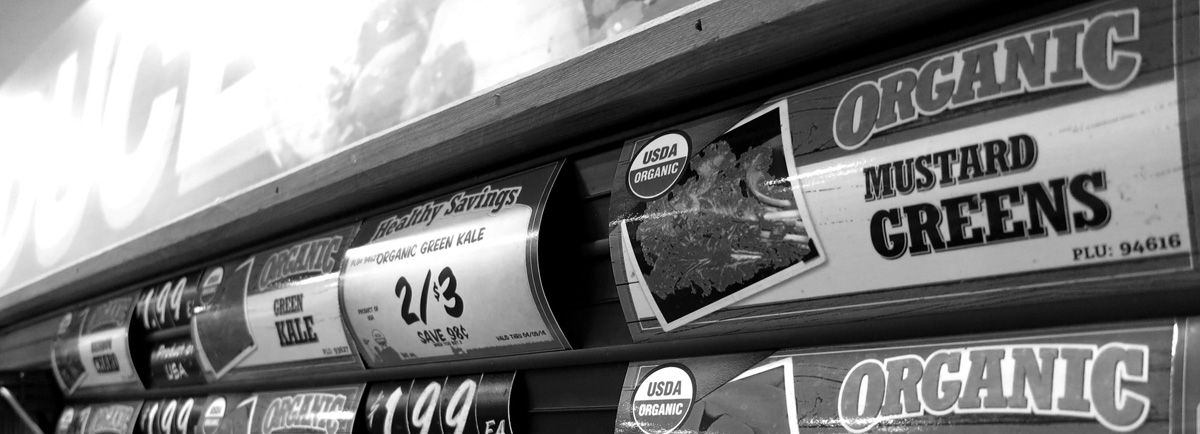When I was attending Humboldt State University in the early to mid-90s, I noticed that I was putting on some weight – the dreaded Freshman 15. To combat this phenomenon, I started getting regular exercise, joined a gym, and started watching my diet. It was right around this time that a new dieting trend burst on the scene: a massive proliferation of low- and non-fat foods, all of which were marketed directly to the consumer’s desire to lose weight while still being able to indulge in treats like cookies, ice cream, and chips. In particular, I remember the Snackwell’s brand of cookies and snack cakes in their trademark green packaging. I remember scanning the nutrition label and seeing that I could eat an entire package of vanilla creme cookies and only ingest 4 grams of fat. Eureka! It never occurred to me to stop and think about the wisdom of this approach. Did it really work? Well, it must – otherwise, why would everyone be buying these products?
Welcome aboard the bandwagon fallacy. The premise is simple: if an idea is becoming popular, it must be true. The low-fat fad took off because so many people wanted to believe in its simple premise that removing fat from your diet would remove fat from your gut. As the idea gained in popularity, it gained in adherents, which further increased its popularity, in a nice little feedback loop. Bandwagons can form around all sorts of premises, tested and untested, but I find the ones that form around food to be quite fascinating. These fads seem to come and go: the high-protein Atkins diet was first popularized in the 1970s then faded, only to experience a resurgence in the 2000s. Of course, as people came to realize that the diet didn’t have the lasting weight-loss effects it promised, it lost its popularity as people abandoned the bandwagon. Yet, these ideas manage to persist. The same thing happened to the lactose-intolerance fad, and I strongly suspect it will happen to the gluten-free fad.
When a bandwagon idea holds the potential for becoming a marketing bonanza, it explodes across a universe of products. This reinforces the bandwagon. Currently, gluten-free is the top dietary fad. It’s quite amusing to see products that never had gluten in them in the first place emblazoned with the GLUTEN FREE! label. I’ve seen it on products as ridiculous as soda and fruit snacks (although as an aside, it can also be quite shocking to discover all sorts of strange ingredients in prepackaged foods, so I suppose it’s always possible that a fruit roll-up could have gluten in it). The same thing happened during the fat-free fad. Other current bandwagon labels include organic, free range, cage free, all natural, non-GMO, RBGH-free, and other labels catering to the health-conscious (but sometimes logic-unconscious). Gluten-free still seems to be towing a full bandwagon, but the next wagon is rapidly filling with adherents. This is the anti-sugar bandwagon. I’ve lately been seeing a lot of ink spilled over the toxic hazards of our high-sugar modern diets, and I have absolutely no doubt that the marketing bonanza has already begun.
Research is revealing that the causes of modern health problems are much more complex and intertwined than the simplistic healthy-food bandwagons would make it appear. I do want to stress that there is real research into some of the bandwagon fads I have mentioned. Sometimes the research supports the fad, sometimes it doesn’t, and often the results are maddeningly inconclusive. The Atkins diet has been thoroughly studied with mixed results, depending on what particular factors were the focus of the research. Lowering the amount of fat in one’s diet also can certainly lead to weight loss, but that by itself is not enough. People with celiac disease truly cannot ingest gluten without becoming severely ill, and some people may be able to handle wheat protein in their diets better than others. Organic foods have the benefit of lowering our exposure to potentially toxic pesticide and herbicide residues; however, some of the other popular adjectives for “healthy” food remain highly problematic because they are misleading. “All Natural” is a loosely regulated term that can be used by almost anybody. “Free Range” and “Cage Free” can mean only that the birds in question are released to a fenced yard for a short time each day or are crowded together in large facilities with no cages – but no natural light or ability to go outside. The research into GMOs and RBGH (recombinant bovine growth hormone) is unsettled and deserves a post of its own. Even the simple “calories in-calories out” approach is turning out to be much more complicated than we thought.
The point of all this is that these issues are complicated and deserve critical review. The bandwagon fallacy encourages us to jump aboard because it’s easier to go with the crowd than do the hard work of researching an issue on the merits. Do your research and you may just find that the bandwagon is the right place to be – but it’s not because everybody else is there. If you choose to ride on the bandwagon, be sure it’s because you are confident in its origins and its destination – whether it’s about making food choices, social choices, or even pop-culture choices. Better yet, build and drive your own wagon!





